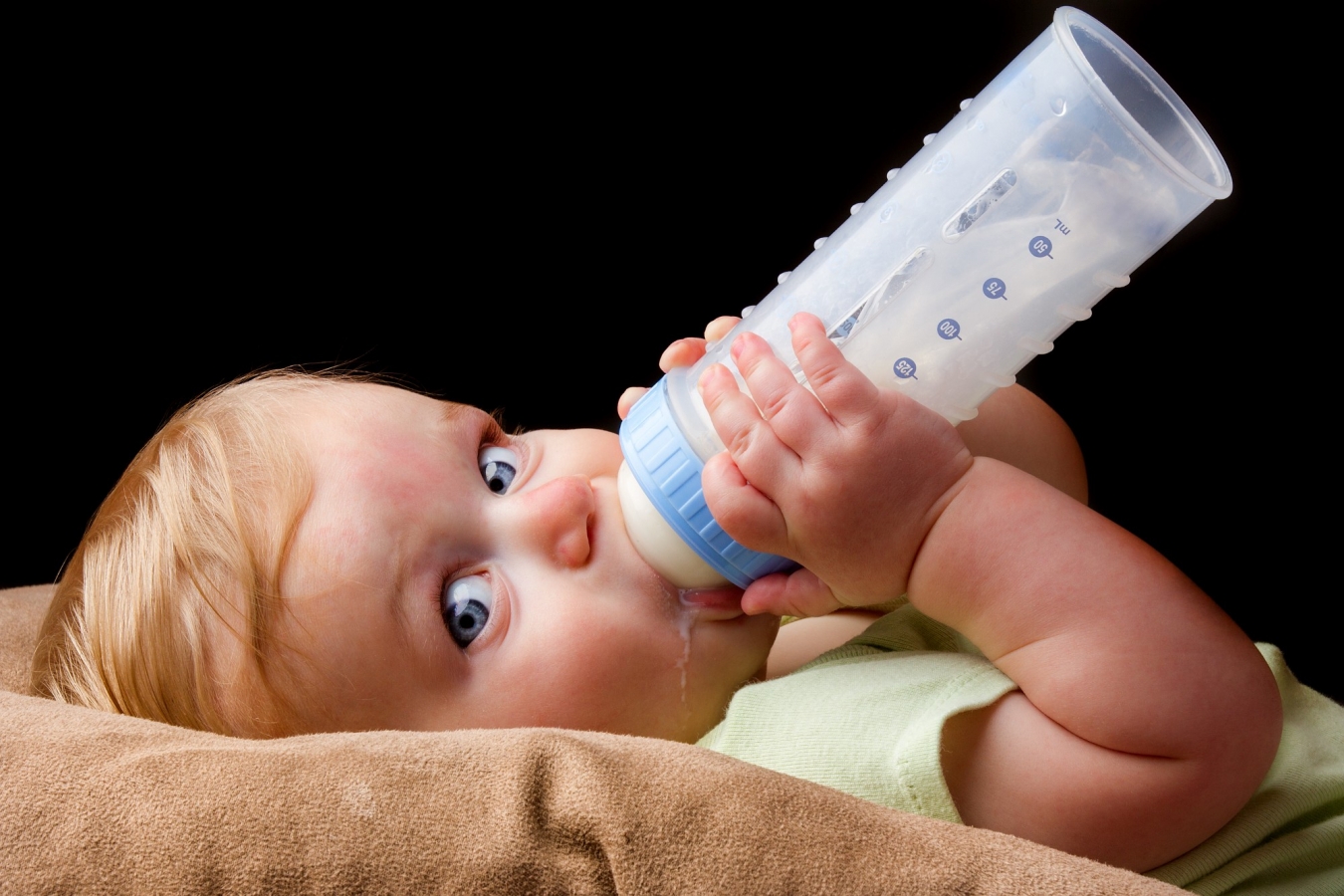


 5:1:0
5:1:0  2018-09-24
2018-09-24  1536
1536

By Yasemin Saplakoglu, Live Science
The "BPA-free" labels on plastic bottles serve as a reassurance that the product is safe to drink out of.
But new research adds onto growing evidence that BPA-free alternatives may not be as safe as consumers think. Researchers found that in mice, BPA replacements caused decreased sperm counts and less-viable eggs. These effects were then passed on to next generations, scientists reported yesterday (Sept. 13) in the journal Current Biology.
Though this research was done on mice, the researchers think the results could hold true for humans. But more research would be needed to confirm.
BPA, which stands for Bisphenol A, is a chemical that has been used in food and beverage packaging since the 1960s, according to the U.S. Food and Drug Administration. Specifically, it is used to make a hard, clear plastic called polycarbonate that found in the protective lining on some metal food and drink cans.
The chemical gets into food and beverages from the containers — especially if the plastic is old or damaged (which can happen, for example, by microwaving it).
In fact, the chemical was so widespread that the 2003-2004 National Health and Nutrition Examination Survey (NHANES III) from the Centers for Disease Control and Prevention found detectable levels of BPA in 93 percent of over 2,500 urine samples taken in the U.S.
Though there is growing evidence that BPA can cause harm to humans, experts are not certain how exactly BPA affects the body, nor do they know the levels at which the chemical becomes harmful, according to a previous Live Science report. The FDA's current consensus is that "BPA is safe at the current levels occurring in foods," according to its website.
But there is some concern that BPA can mimic the hormone estrogen and could thus disrupt the natural hormonal system in the body, according to the Live Science report.
Though the FDA currently only bans the chemical in baby bottles, sippy cups and infant formula packaging, growing public concern and pressure has, throughout the years, led to an influx of "BPA-free" products on the market.
In those products, alternative chemicals are used to replace the function of BPA. And "there's growing evidence that many of these common replacements are not safe," senior author Patricia Hunt, a professor in the School of Molecular Biosciences at Washington State University, said in a statement.
In the new study, Hunt and her team were actually trying to determine what the effects of BPA were on the reproduction of mice, when they noticed something weird, according to an article in National Geographic.
The mice, all in BPA-free plastic cages, were divided into two groups. One group received BPA through a dropper, while the other group did not. The group that didn't receive the BPA was supposed to be a control — but then the control mice started to show genetic changes similar to the mice receiving BPA.
They found that the control group was being exposed to the BPA alternative, bisphenol S or BPS from damaged cages. These chemicals were altering their chromosomes— or thread-like structures that contain genes — and leading to problems with egg and sperm production, according to the study.
So they conducted follow-up tests, purposefully exposing the mice to these alternatives, such as BPF, BPS and BPAF. They found similar results. Both sexes had problems properly recombining DNA — the process of forming new chromosomes by combining bits and pieces of genetic material from both parents — to produce sperm and eggs. These changes could lead to less viable sperm and abnormal eggs, according to the statement.
They further found that these alterations can be passed down from generation to generation — and if they completely eliminated all BPA and alternatives, the effects would continue for three generations.
The same team, 20 years ago, found that BPA itself damages egg chromosomes, according to the statement.
The problem might be that the alternatives aren't much different than BPA itself — all the new versions have the basic chemical structure, with only slight differences from BPA.
Johanna Rochester, a senior scientist at the nonprofit The Endocrine Disruption Exchange, who was not part of the research, told National Geographic that the world should be moving away from BPA alternatives. "We don't really want to wait another 20 years for all these human studies to show that there is a problem," she said.
BPA or BPA-alternative, "plastic products that show physical signs of damage or aging cannot be considered safe," Hunt said in another statement.
Reality Of Islam |
|

MXenes are

A newly dev

Get ready f

Researchers
 9:3:43
9:3:43
 2018-11-05
2018-11-05
10 benefits of Marriage in Islam
 7:5:22
7:5:22
 2019-04-08
2019-04-08
benefits of reciting surat yunus, hud &
 9:45:7
9:45:7
 2018-12-24
2018-12-24
advantages & disadvantages of divorce
 11:35:12
11:35:12
 2018-06-10
2018-06-10
 6:0:51
6:0:51
 2018-10-16
2018-10-16
 7:32:24
7:32:24
 2022-02-14
2022-02-14
 6:0:8
6:0:8
 2023-03-19
2023-03-19
 8:15:37
8:15:37
 2023-02-16
2023-02-16
 3:43:50
3:43:50
 2022-11-05
2022-11-05
 8:3:0
8:3:0
 2018-06-21
2018-06-21
 11:11:59
11:11:59
 2023-02-01
2023-02-01
 7:26:19
7:26:19
 2022-04-08
2022-04-08
 5:41:46
5:41:46
 2023-03-18
2023-03-18
| LATEST |